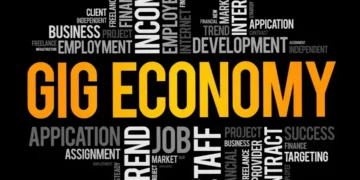
Gender Fluidity and Identity Politics: Challenging Binary Notions of Gender
Gender fluidity challenges traditional binary notions of identity, promoting personal autonomy and diverse expressions. As individuals navigate their fluid identities, intersectionality and community support play crucial roles. Increased visibility and representation in media foster broader acceptance, while ongoing activism addresses systemic inequalities and advocates for inclusive policies.

The Intersection of Technology and Business Language: A New Era
The rapid advancement of technology is transforming business communication, blending traditional terminology with digital language. Companies leveraging AI, data analytics, and collaborative tools enhance decision-making and foster a customer-centric dialogue, positioning themselves for growth and adaptability in an evolving landscape. Embracing this change is crucial for future success.

The Evolution of Business Terminology in the Era of Globalization
The article explores how globalization has transformed business terminology, emphasizing technology, market integration, and cultural influences. Key terms like blockchain, digital transformation, and agile practices illustrate the evolving language of commerce. Understanding this shift is essential for organizations to thrive in a competitive, interconnected market.

The Shift Towards Inclusive Language in Corporate America
Corporate America is increasingly adopting inclusive language to enhance workplace culture, employee engagement, and brand reputation. This shift not only reflects changing societal values but also drives financial benefits, such as reduced turnover and increased customer loyalty, positioning companies for sustainable success in a diverse market.

The Rise of the Gig Economy: Redefining Work, Identity, and Economic Security
The gig economy is transforming traditional work structures by offering flexibility and diverse income opportunities. However, it presents challenges such as income variability and lack of benefits. Navigating this landscape requires financial literacy and proactive planning to ensure economic security and personal fulfillment amidst its uncertainties.

Gender Fluidity and Identity Politics: Challenging Binary Notions of Gender
The article explores gender fluidity as a transformative concept, advocating for a spectrum approach to gender identity. It highlights its implications for personal expression, societal norms, legal recognition, and economic opportunities, emphasizing the importance of inclusivity across media, education, and policy to foster understanding and acceptance.

From Traditional to Transformative: The Evolution of Family Structures in America
The article explores the significant evolution of family structures in America, highlighting shifts from traditional nuclear families to diverse arrangements like blended and single-parent households. It discusses the economic implications of these changes, emphasizing the need for targeted social policies and support systems to ensure financial stability for modern families.

The Legacy of Colonialism in Contemporary American Culture: Unpacking Historical Narratives
The article explores the enduring influence of colonialism on contemporary American culture, highlighting its impacts on education, economic disparities, and cultural representation. It emphasizes the need for a nuanced understanding of historical narratives to foster equity, acknowledge marginalized voices, and navigate issues of cultural appropriation and appreciation.

The Decline of the American Dream: Reimagining Success in a Post-Pandemic Society
The article explores the transformation of success in America post-pandemic, highlighting how values like work-life balance, personal fulfillment, and community well-being have replaced traditional metrics. It advocates for a broader understanding of achievement that integrates financial stability with holistic well-being, paving the way for a redefined American Dream.

Food Sovereignty and Cultural Heritage: The Intersection of Cuisine and Identity
Food sovereignty plays a vital role in shaping cultural identity by empowering communities to control their food systems. By preserving traditional practices and local cuisines, it fosters social cohesion, boosts local economies, and promotes ecological sustainability, ensuring that cultural heritage thrives in a rapidly changing world.